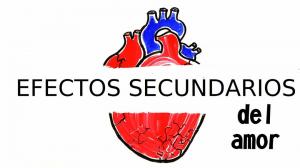Do you argue a lot with your partner?
Intimate relationships are one of the most important aspects in our life; now, it is human that while we share life with our partner, arise different ways of seeing and doing things, of facing problems and reacting to conflicts.
Faced with this phenomenon, Emotion-Focused Therapy for couples, created by Dr. Sue Johnson, offers solutions: a path to sincere approach and acceptance of both oneself and the other.
Based on the attachment theory, this therapeutic process accompanies each member of the couple to rediscover themselves and their relationship, supporting them in the joint work of co-create a unique recipe for love: "I am who I am, my partner is who he is and together we are and we create something much bigger, genuine and very personal". A relationship of a couple in love for two.
- Related article: "How do you know when to go to couples therapy? 5 compelling reasons"
Managing emotions in couple relationships
Contrary to what we have traditionally been taught, the so-called negative emotions (such as anger) acquire a positive meaning in Emotionally Focused Therapy
(TFE). Why? Because they are undoubtedly signs that we care about the other person.The behaviors we learn to defend what is important to each of us and what we feel inside, they arise especially in times of conflict and discussion. These emotions, what we think and how we act acquire their full meaning when we can understand not only where they come from and what they have the function of protecting us, but also how they also activate emotions, thoughts and behaviors in the couple.
Thus, emotions always have meaning if we see them from attachment theory, the fundamental basis of EFT.

- You may be interested: "12 tips to better manage couple arguments"
The psychological implications of attachment
Attachment Theory, according to its creator and developer John Bolwby, allows us to understand how human beings need to form secure affective bonds with the people we love the most. matter and how expressions of anger, distress, or depression arise when that connection is broken or compromised. It is a theory about relationships and love, that lasting psychological-emotional connection that shapes our behaviors and sustains us throughout our lives. This connection is a secure base from which we can be and do, experience life and feel understood and accepted..
When someone is important to us, we feel a deep connection that we want to maintain because it gives us stability in all aspects of our lives. And it is so when we feel that this connection is broken, we react. We react to the threat of losing that special connection, we react with anger, sadness and even silence, depending on each person. Arguments appear because we feel that the most important person in our life does not understand us and this hurts us.
When we feel distant, we see our very special bond in danger because we stop feeling the other. As each person has the natural need to feel loved and accepted, when it is not we become more reactive in our attempt to protect what we feel, our vulnerability: we protect ourselves by withdrawing, disconnecting, getting angry openly or both.
- Related article: "The 4 types of love: what different kinds of love exist?"
a troublesome loop
In this way, the base of security that we share with our partner is damaged with each conflict, and if there is no resolution or rapprochement, it deteriorates and can feel broken. When something starts the conflict, each person in the couple feels something inside and acts to express themselves and protect what they feel; a negative cycle appears in the way of relating that is repeated over and over again in different situations.
This negative cycle is like a two-way highway, a "loop": what I feel makes me think and feel and I do something to express myself. What I do my partner interprets in a way that also leads him to think and feel something, generating a reactive protest response.
This, which is repeated over and over again in different discussions, puts us on alert that we can lose the person we love the most, the one who has been chosen as a life partner. For example, when your partner does or says something and you interpret it as not accepting you, on the outside you can show anger, on the inside there is the fear of not being loved. And at that very moment, this anger in you awakens in your partner the thought that no matter what he does, he will never be enough, and withdraws, moves away physically also feeling the fear of not being loved and losing the most important thing in his life, your love.
It is then with this estrangement from your partner, that you feel and interpret that he does not really accept you and you continue to show your anger with the disconnection... and the cycle begins again.
One thing is what we really feel inside, another thing is how we express it and what we let the other see. What happens to each one inside and what each one expresses awakens something in the other that reacts backThis keeps this negative cycle active that keeps them away when what they really want is to get closer.
- You may be interested: "The 16 keys to learn to manage anger in ourselves"
The best option is to go to therapy
Therapists focused on emotions are consultants of the negative cycle that the couple lives and how while this way of relating leads to disconnection and estrangement, we can reconnect with who we love.
We understand that shutting up and leaving or yelling and wanting to keep talking is always a protest, that what you are looking for is to feel the other again. In this way, we work in each therapeutic meeting together with the couple, facilitating the connection not only with the emotions that each one feels inside, but with the way of expressing it, which activates in the other person their way of react. Both people in the couple have emotions that are important, and that need to be heard to create an attachment bond that feels secure.
"Your partner really matters to you and that's why you react; If you didn't care about that important person in your life, you wouldn't react."

